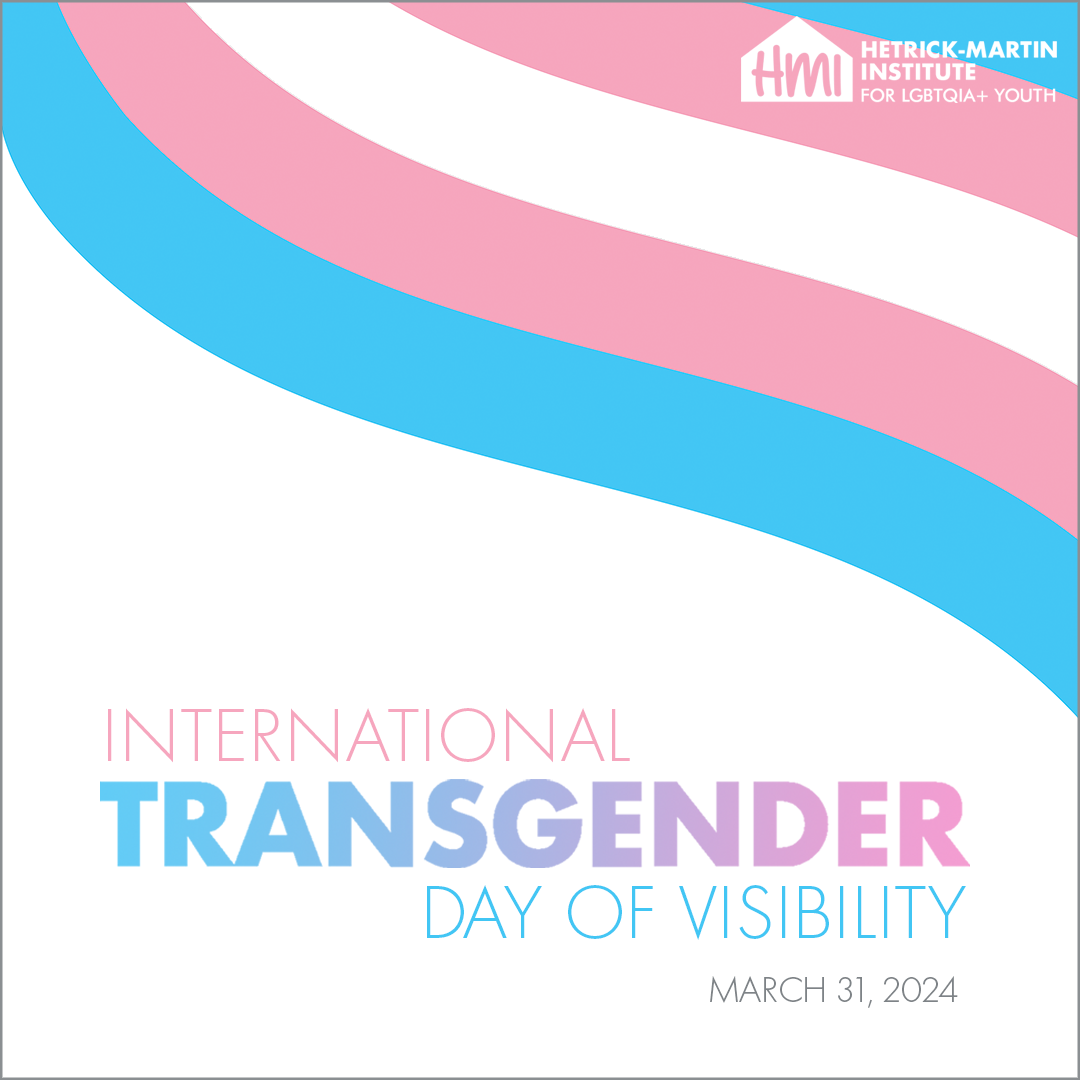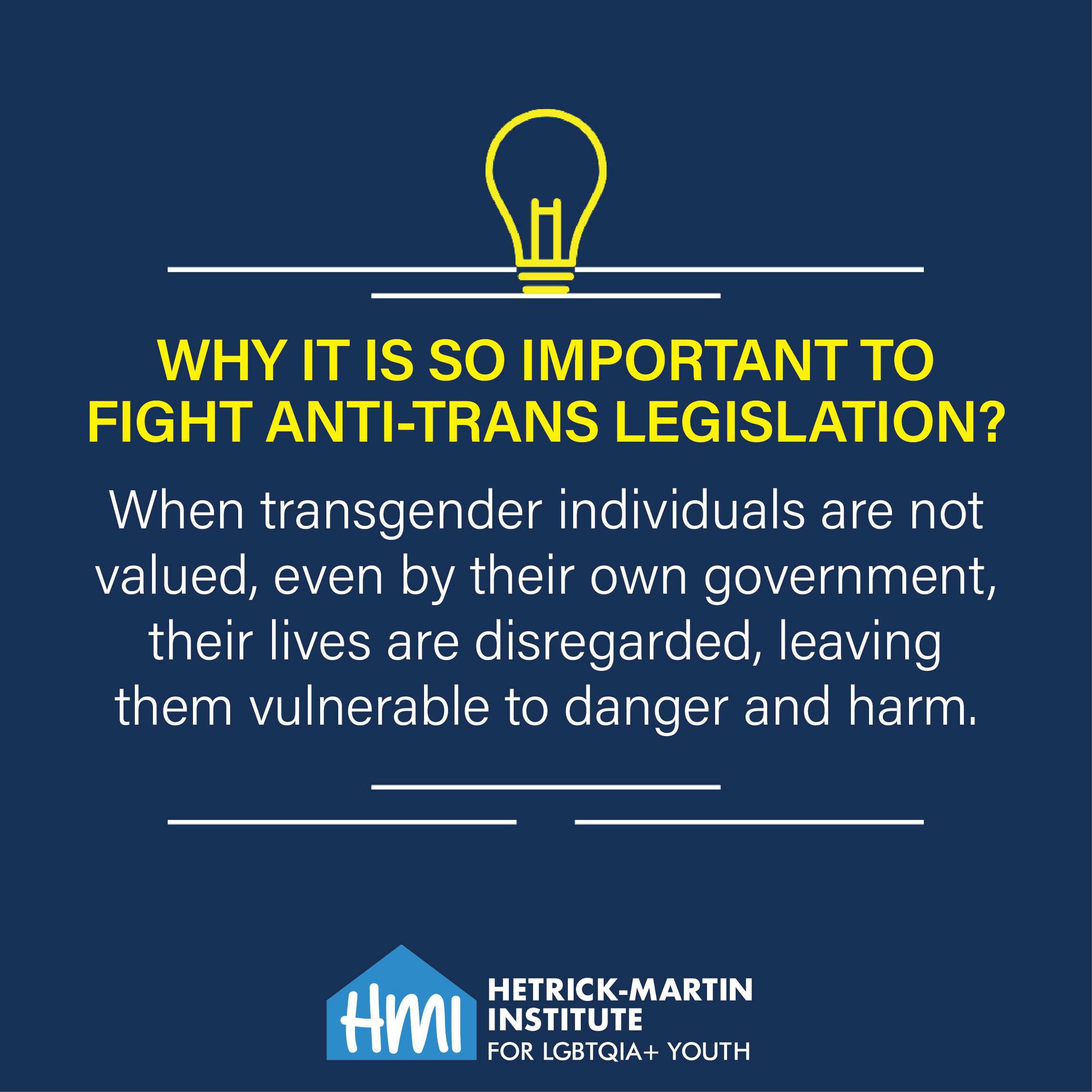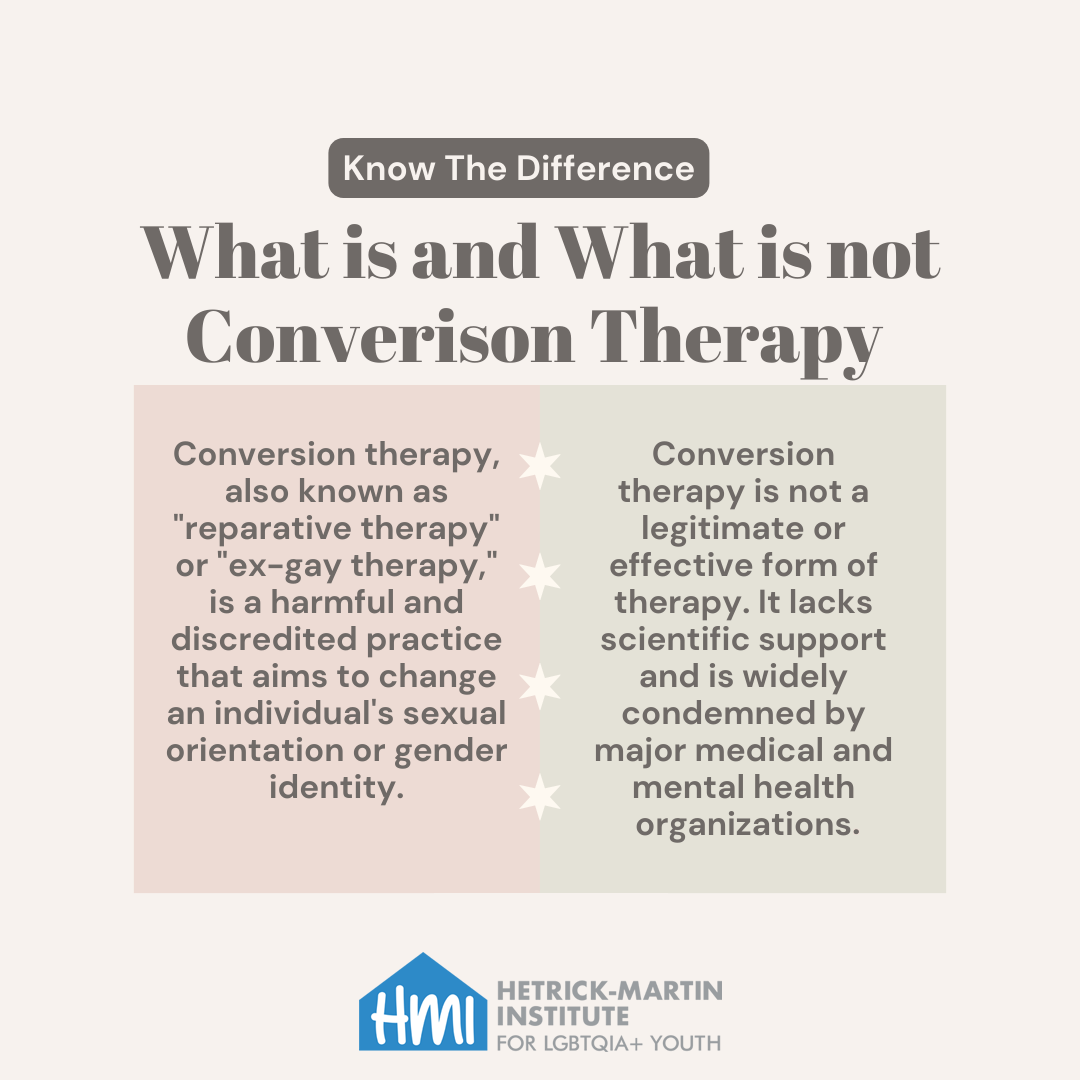March 31, 2024
 International Transgender Day of Visibility | March 31
International Transgender Day of Visibility | March 31
Today, on March 31st, Transgender Day of Visibility, we unite to celebrate the journey and experiences of transgender individuals. It is a day not only to honor their courage but also to reaffirm our unwavering support for all queer and trans youth as they navigate their identities. In doing so, we call upon parents, schools, and society to actively demonstrate their support by affirming the identities of these young individuals. These pillars of support, integral to the daily lives of trans youth, play a crucial role in assisting them in developing their own distinct identity, fostering an environment of acceptance and understanding.
When a young person expresses a desire to identify with a gender different from the one assigned to them at birth, their journey is eased when they receive understanding and support from their loved ones and communities. This support is vital in creating a safe and affirming space for their self-discovery and expression.
As transgender adolescents face the challenges of puberty, medical interventions such as reversible puberty blockers may be recommended by healthcare professionals to safely postpone the physical changes associated with puberty. It’s essential to note that puberty blockers are not “experimental” therapy but FDA-approved drugs that have been utilized for decades to address issues like premature puberty in non-transgender youth. Access to puberty blockers can significantly alleviate dysphoria and provide vital support to transgender youth, contributing to their overall well-being and mental health.
Finally, Transgender Day of Visibility is not just a day of celebration; it is also a call to action. We must remain vigilant in the face of ongoing challenges, particularly the relentless wave of hateful legislation across the country targeting transgender kids and their families. It is imperative that we stand together and actively fight against such legislation, ensuring that transgender individuals continue to receive the love, support, and respect they deserve.
For more information:
For youth 13-24 experiencing gender dysphoria, please email us at join@hmi.org.
For parents and guardians, please visit PFLAG.
Call to action:
Contact your representatives urging them to advocate for and protect trans youth.
February 22, 2024
 Why It’s So Important to Fight Anti-Trans Legislation
Why It’s So Important to Fight Anti-Trans Legislation
As of 2024, the Human Rights Campaign and other groups have documented over 300 incidences of lethal violence against transgender and gender nonconforming people in 30 states and 113 localities around the US since 2013. However, it’s important to note that it’s important to note that transgender and gender nonconforming individuals face violence across the entire United States, regardless of state or locality. As of February 22, 2024, HRC reports at least 35 homicides of transgender or gender-expansive people in 2023 alone. Additionally, the transgender and non-binary community continues to experience disproportionately high rates of harassment and physical assault. Particularly alarming is the situation of transgender youth—a CDC 2021 Youth Risk Behavior Surveillance study showed that approximately 43% continue to report being bullied in school.
Furthermore, transgender-targeting legislation persists, with ongoing debates and implementations across various states. The political rhetoric accompanying anti-trans legislation continues to send the message that transgender persons are not deserving of equal treatment under the law, perpetuating harmful stigma and contributing to the ongoing epidemic of violence against transgender and gender nonconforming individuals. Evidence suggests that such discriminatory laws not only perpetuate systemic inequality but also excessively impact trans youth, fueling a climate of hostility and violence, sometimes fatal, against them.”
The loss of any young life is a tragedy, and violence against any individual, regardless of their gender identity, is unacceptable. 16-year-old trans student, Nex Benedict’s death highlights the importance of creating safe and inclusive environments for all students, free from bullying and discrimination.
Human Rights Campaign
Everytown for Gun Safety
National Center for Transgender Equality
Center for Disease Control
February 16, 2024
 What is and What is not Conversion Therapy
What is and What is not Conversion Therapy
Conversion therapy, commonly known as “reparative therapy” or “ex-gay therapy,” is a destructive and discredited practice aimed at changing a person’s sexual orientation or gender identity. It can include a variety of approaches, including talk therapy, aversion therapy, and religious interventions, all of which are founded on the incorrect premise that being LGBTQIA+ is a mental condition that can and should be treated.
Conversion therapy is neither legal nor effective as a method of therapy. It is devoid of scientific backing and has been publicly denounced by major medical and mental health organizations. It is not a viable option for people who are questioning their sexual orientation or gender identity. Instead, encouraging and supportive therapy can assist people in exploring and accepting their true identities.
